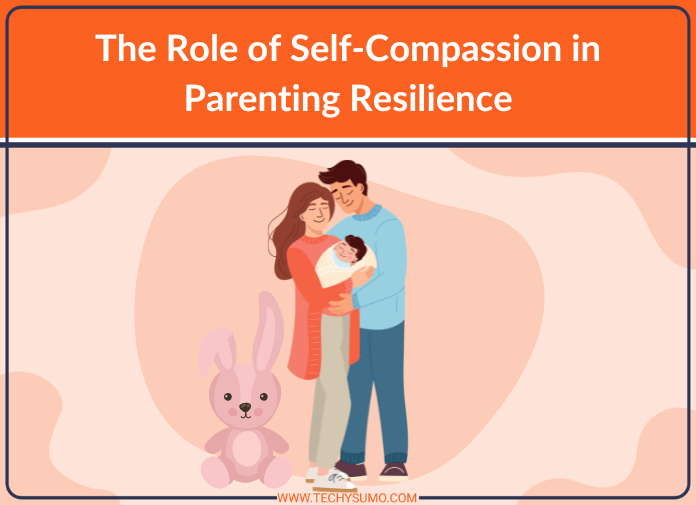Parenting teenagers feels like navigating uncharted waters without a compass. Your once-sweet child now rolls their eyes at everything you say, slams doors, and treats you like the enemy. You’re walking on eggshells, wondering where you went wrong.
The truth is, you haven’t failed: adolescence is simply one of life’s most challenging transitions. Building a strong connection with your teen isn’t impossible, but it requires fresh approaches that respect their growing independence while maintaining your important role as their guide.
Table of Contents
- Understanding the Modern Teenage Brain and Development
- Essential Strategies for Building Trust with Your Teenager
- Proven Techniques for Improving Communication with Teens
- Creative Bonding Activities for Parents and Teens
- Advanced Parenting Tips for Teenagers in Different Life Stages
- Addressing Modern Teen Challenges Together
- Crisis Management and Difficult Conversations
- Long-term Relationship Investment Strategies
- Measuring Success and Continuous Improvement
- Your Parent-Teen Relationship Questions Answered
Understanding the Modern Teenage Brain and Development
Understanding these challenges is just the first step, the real breakthrough comes when you grasp the fascinating science behind why your teenager acts the way they do. Research consistently shows that strengthening parent-teen relationship efforts becomes more effective when parents understand adolescent brain development.
Self-expression and building resilience through a strong parental relationship are more important than ever. The teenage brain undergoes massive reconstruction during adolescence. The prefrontal cortex, responsible for decision-making and impulse control, won’t fully mature until age 25.
Meanwhile, the limbic system, which processes emotions, is hyperactive. This explains why your teen can be incredibly smart one moment and make questionable choices the next. This biological reality means they’re not equipped to think like adults yet.
Also Read
When seeking professional guidance becomes necessary, families navigating these complex changes can benefit greatly from a comprehensive parents guide to mental health for teens, which provides invaluable support during this time.
Recognizing Developmental Milestones and Emotional Changes
Teenagers experience rapid emotional fluctuations that can seem dramatic but are completely normal. They’re developing their identity, questioning authority, and learning to think independently. These aren’t character flaws, they’re developmental milestones.
Impact of Social Media and Digital Technology on Teen Psychology
Today’s teens face unique pressures from constant digital connections. Social media amplifies peer comparison and creates 24/7 social pressure. Understanding this helps you respond with empathy rather than frustration when they seem glued to their devices.
Essential Strategies for Building Trust with Your Teenager
Now that you understand the neurological forces shaping your teen’s world, it’s time to translate this knowledge into actionable strategies that build unshakeable trust. These foundational trust-building techniques will become the bedrock of every successful interaction you have moving forward.
Consistency in Words and Actions That Matter Most
Building trust with your teenager starts with reliability. When you say you’ll do something, follow through. If you promise consequences, enforce them fairly. If you commit to activities, show up. Consistency doesn’t mean perfection, it means predictability in your character and responses.
Respecting Privacy While Maintaining Open Doors
Teens need privacy to develop independence, but they also need to know you’re available when they’re ready to talk. Create clear boundaries about what requires disclosure (safety issues) versus what’s their business (friendship drama, crushes).
Supporting Teen Autonomy Without Compromising Safety
Give your teenager age-appropriate freedoms while maintaining non-negotiable safety rules. Let them choose their clothes, music, and hobbies. Allow them to make minor mistakes and learn from consequences. This builds confidence while showing you trust their judgment.
Proven Techniques for Improving Communication with Teens
Trust forms the foundation, but communication becomes the bridge that connects you to your teenager’s inner world. Master these proven conversation techniques to transform everyday exchanges into meaningful connections that your teen will want to engage in.
Active Listening Beyond Surface Conversations
Improving communication with teens requires moving past surface-level exchanges. When your teen shares something, put down your phone and give full attention. Reflect on what you hear before offering advice. Often, they just want to be heard, not fixed.
Timing Your Conversations for Maximum Impact
Avoid serious conversations when emotions are high or when they’re hungry, tired, or stressed. Car rides often work well because there’s less direct eye contact, making teens feel less interrogated. Late evening can also be effective if they’re night owls.
Using “I” Statements to Reduce Defensive Responses
Replace accusatory language with statements about your feelings. Instead of “You never listen,” try “I feel unheard when we talk.” This approach reduces defensiveness and opens dialogue rather than shutting it down.
Digital Communication Etiquette for Modern Families
Text your teen occasionally with encouragement or funny memes. Respect their preferred communication methods while setting boundaries about family time being phone-free. Use technology to connect, not control.
Non-Verbal Communication Cues That Build Connection
Your body language speaks volumes. Maintain an open posture, make appropriate eye contact, and match their energy level when possible. A hug or gentle touch can communicate support when words fall short.
Creative Bonding Activities for Parents and Teens
Great communication opens the door, but shared experiences create lasting memories that strengthen your bond beyond words. Discover creative activities that naturally foster connection while giving you and your teen something genuinely exciting to look forward to together.
Technology-Based Activities That Bridge Generational Gaps
Bonding activities for parents and teens don’t have to be old-fashioned. Play video games together, learn TikTok dances, or watch their favorite YouTubers. Let them teach you their digital world, it’s a powerful role reversal that builds mutual respect.
Adventure and Outdoor Experiences That Build Memories
Try rock climbing, hiking, camping, or exploring new neighborhoods. Physical activities release endorphins and create natural conversation opportunities. The shared challenge builds teamwork and mutual accomplishment.
Creative Projects and Learning Opportunities Together
Cook elaborate meals, build something, learn a new skill together, or start a creative project. These activities provide natural talking opportunities while creating something meaningful you can both be proud of.
Volunteer Work and Community Service as Family Bonding
Volunteering together exposes teens to different perspectives while working toward shared goals. Choose causes that align with their interests—animal shelters, environmental cleanup, or helping younger children.
Cultural Experiences and Travel Adventures (Budget-Friendly Options)
Visit museums, attend concerts, explore ethnic neighborhoods, or take day trips to nearby towns. These experiences broaden perspectives and create talking points that extend far beyond the activity itself.
Advanced Parenting Tips for Teenagers in Different Life Stages
While bonding activities create connection opportunities, your approach must evolve as your teenager progresses through distinct developmental phases. Let’s explore targeted strategies that meet your teen exactly where they are in their unique journey toward adulthood.
Navigating Early Adolescence (Ages 13-15): Identity Formation
Early teens are figuring out who they are, separate from their parents. Parenting tips for teenagers during this stage focus on supporting their exploration while maintaining connection. Expect mood swings, friend drama, and testing boundaries, it’s all normal identity development.
Addressing Modern Teen Challenges Together
Understanding your teen’s developmental stage provides the framework, but today’s teenagers face unprecedented challenges that require specialized support strategies. Here’s how to tackle the most pressing issues affecting modern teens while maintaining your strong relationship foundation.
Managing Academic Pressure and College Stress
Help your teen develop healthy study habits and stress management techniques. Focus on effort over grades, and help them understand that their worth isn’t determined by academic achievement. Model healthy work-life balance.
Navigating Social Media Drama and Cyberbullying
Stay informed about your teen’s online world without invading their privacy. Teach them about digital citizenship, appropriate boundaries, and when to seek help. Be ready to intervene if cyberbullying occurs.
Supporting Teen Mental Health and Emotional Well-being
Watch for signs of depression, anxiety, or other mental health concerns. Create a supportive environment where seeking help is normalized, not stigmatized. Don’t hesitate to consult professionals when needed, many of whom pursued careers with a psychology major and bring specialized training to support families.
Discussing Dating, Relationships, and Sexual Health
Start these conversations early and keep them ongoing. Share your values while providing factual information. Focus on healthy relationships, consent, and emotional readiness rather than just physical aspects.
Handling Peer Pressure and Social Influences
Help your teen develop decision-making skills and confidence to resist negative peer pressure. Role-play difficult scenarios and discuss strategies for handling challenging social situations.
Crisis Management and Difficult Conversations
Successfully navigating everyday challenges builds confidence, but every parent needs a crisis management toolkit for those inevitable difficult moments. Learn how to handle intense situations without damaging the relationship you’ve worked so hard to build.
Warning Signs That Require Immediate Attention
Watch for dramatic personality changes, withdrawal from activities they once enjoyed, dangerous behaviors, or talk of self-harm. Trust your instincts when something feels seriously wrong, seek professional help immediately.
Having Tough Conversations About Risk-Taking Behaviors
Approach difficult topics with curiosity rather than judgment. Ask open-ended questions about their experiences and feelings. Share your concerns while listening to their perspective. Focus on safety and decision-making skills.
De-escalation Techniques for Heated Arguments
When tensions escalate, take a break before things get destructive. Use calm, low tones and acknowledge their feelings even if you disagree with their behavior. Return to the conversation when both of you can communicate respectfully.
Long-term Relationship Investment Strategies
Smart technology use enhances daily connections, but building a relationship that thrives for decades requires intentional long-term planning. These investment strategies ensure your parent-teen bond continues growing stronger well into their adult years.
Building Traditions That Evolve with Your Teen
Create meaningful family traditions that can adapt as your teen grows. These might be annual trips, special meals, or celebration rituals that maintain connection while respecting their changing needs and interests.
Preparing for the Transition to Young Adulthood
Gradually increase their responsibilities and decision-making opportunities. Discuss practical adult skills like budgeting, cooking, and time management. Help them develop independence while maintaining emotional connection.
Maintaining Connection During College and Beyond
Establish communication patterns that work for both of you. Regular check-ins, care packages, and visits help maintain connection. Respect their need for independence while showing continued interest in their life.
Measuring Success and Continuous Improvement
Having a long-term vision guides your efforts, but measuring your progress ensures you’re moving in the right direction. Learn to recognize the signs of a strengthening relationship and continuously refine your approach based on real results.
Signs Your Relationship Is Growing Stronger
Look for increased voluntary communication, your teen seeking your advice, comfortable silence together, and mutual respect during disagreements. These indicate growing trust and connection.
Regular Family Check-ins and Relationship Assessments
Schedule periodic family meetings to discuss what’s working and what needs adjustment. Ask your teen for feedback on your parenting approach and be willing to make changes based on their input.
Your Parent-Teen Relationship Questions Answered
What is the hardest age to parent a teenager?
The teenage years are frequently combative and difficult for parents to manage, especially around ages 14-16, as they push for independence. Understanding what’s happening in a teenager’s brain can help parents navigate this challenging period.
How to repair a mother-daughter relationship?
One effective strategy involves acknowledging past issues and expressing a genuine desire to work on them. Both parties should practice active listening, validate each other’s feelings, and express empathy while working together.
When should parents seek professional help for teen relationship issues?
Consider professional support when communication completely breaks down, dangerous behaviors emerge, or family conflicts consistently escalate without resolution. Early intervention prevents long-term relationship damage and provides valuable tools.






